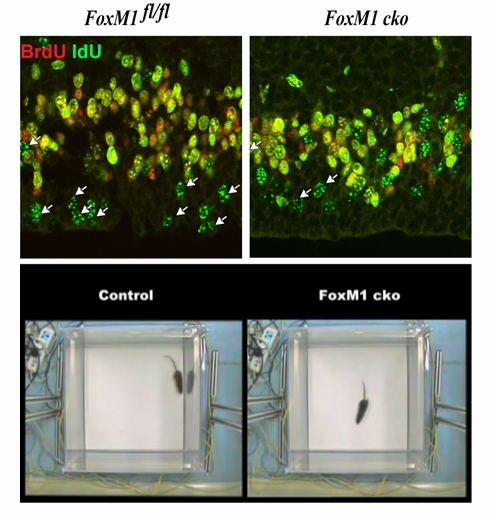Wu Xiaojing, a doctoral candidate in Prof. Zhao Chunjie’s laboratory in Southeast University, reported a research result about early brain development and anxiety-related behavior. The paper entitled “A Novel Function for Foxm1 in Interkinetic Nuclear Migration in the Developing Telencephalon and Anxiety-Related Behavior” was published in The Journal of Neuroscience on January 22, 2014.
Interkinetic nuclear migration (INM) is a key feature of cortical neurogenesis. INM functions to maximize the output of the neuroepithelium, and more importantly, balance the self-renewal and differentiation of the progenitors. Although INM had been reported to be highly correlated with the cell cycle, little was known about the effects of cell cycle regulators on INM. In Wu’s study, by crossing Foxm1(fl/fl) mice with Emx1-Cre line, she successfully reported that a conditional disruption of forkhead transcription factor M1 (Foxm1) in dorsal telencephalon resulted in abnormal cell cycle progression, leading to impaired INM through the downregulation of Cyclin b1 and Cdc25b. The study found the impairment of INM disturbed the synchronization of apical progenitors (APs) and promoted the transition from APs to basal progenitors (BPs) in a cell-autonomous fashion. Moreover, ablation of Foxm1 caused anxiety-related behaviors in adulthood.
With the research findings, Zhao’s team has provided precious evidence of linkages among the cell cycle regulator Foxm1, INM, and adult behavior for further related studies.





